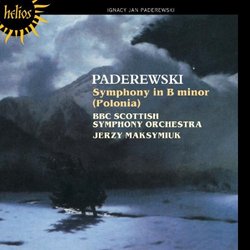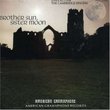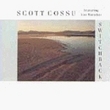| All Artists: BBC Scottish Symphony Orchestra Title: Paderewski: Symphony in B Minor (Polonia) Members Wishing: 0 Total Copies: 0 Label: Hyperion Original Release Date: 1/1/2010 Re-Release Date: 1/12/2010 Album Type: Import Genre: Classical Style: Symphonies Number of Discs: 1 SwapaCD Credits: 1 UPC: 034571153513 |
Search - BBC Scottish Symphony Orchestra :: Paderewski: Symphony in B Minor (Polonia)
 | BBC Scottish Symphony Orchestra Paderewski: Symphony in B Minor (Polonia) Genre: Classical |
Larger Image |
CD DetailsSimilarly Requested CDs
|
CD ReviewsPaderewski's Ardent Plea for Polish Independence, Now a Valu Dace Gisclard | Houston, TX | 01/23/2010 (5 out of 5 stars) "Although HYPERION released this recording in 1998, I passed it by, because I had a perfectly lovely performance on LP, with the Pomeranian Philharmonic of Bydgoszcz conducted by Bohdan Wodiczko (MUZA SXL 0968). However, this re-release on the mid-priced HELIOS series induced me to purchase, and I'm VERY glad I did. For starters, I discovered that the LP had extensive cuts, omitting over 20 MINUTES. HYPERION/HELIOS presents the work absolutely complete--over 74 minutes!
So much for dry statistics--what about the music and the performance? Paderewski, the impassioned Polish patriot, composed the symphony in direct response to the 40th anniversary of the 1863-64 uprising. Most of it is not overtly programmatic, but the finale is a struggle between disguised references to the Polish national anthem and "the forces of evil." The symphony became sort of a musical incendiary bomb, of great significance and encouragement to Polish listeners when Poland was partitioned between Austria, Prussia and Russia, and Polish culture was brutally suppressed. At the time, every performance of the "Polonia" Symphony turned into a more or less camouflaged patriotic manifestation. With the Symphony, Paderewski demonstrates that when he wanted to, he could write music of vastly greater emotional depth and range than his 'Menuet in G' or the lovely if rather facile Piano Concerto. (Similar in this regard are the 'Sonata' and 'Variations and Fugue' for piano--also warmly recommended to seekers of neglected but worthy works. Paderewski: Piano Sonata Op. 21; Variations & Fugues Opp. 11 & 13) True, the Symphony comes off sounding more like a collection of three huge and episodic symphonic poems, but that is not necessarily a bad thing. Paderewski's voice is not totally original, but he absorbs and personalizes many of the late romantic stylistic tendencies of his era. Perhaps the musical chain of events is not absolutely riveting at every moment, but lovers of Glazunov, Gliere, Rachmaninoff, Tchaikovsky, Liszt and (even early Sibelius!) will discover much here that is to their taste. The extravagant scoring of the symphony matches the sprawl of its time-scale. Organ is included, as well as such rare instruments as three sarusaphones, and Paderewski's own newly-invented percussion instrument, the "tonitruone"--a suspended piece of tin which produces sinister and mysterious sounds. Hyperion's sound is rich yet transparent, doing full justice to the sumptuous orchestration. So intense is the present performance, one might think the orchestra, not just the conductor, was Polish! I can't imagine we shall get a better one any time soon. The triumphant ending carries absolute conviction. If one is a lover of epic late romantic symphonies that alternate romantic brooding with swaggering heroics, HELIOS' reduced price ought to entice one to give this unfamiliar work a try." |










